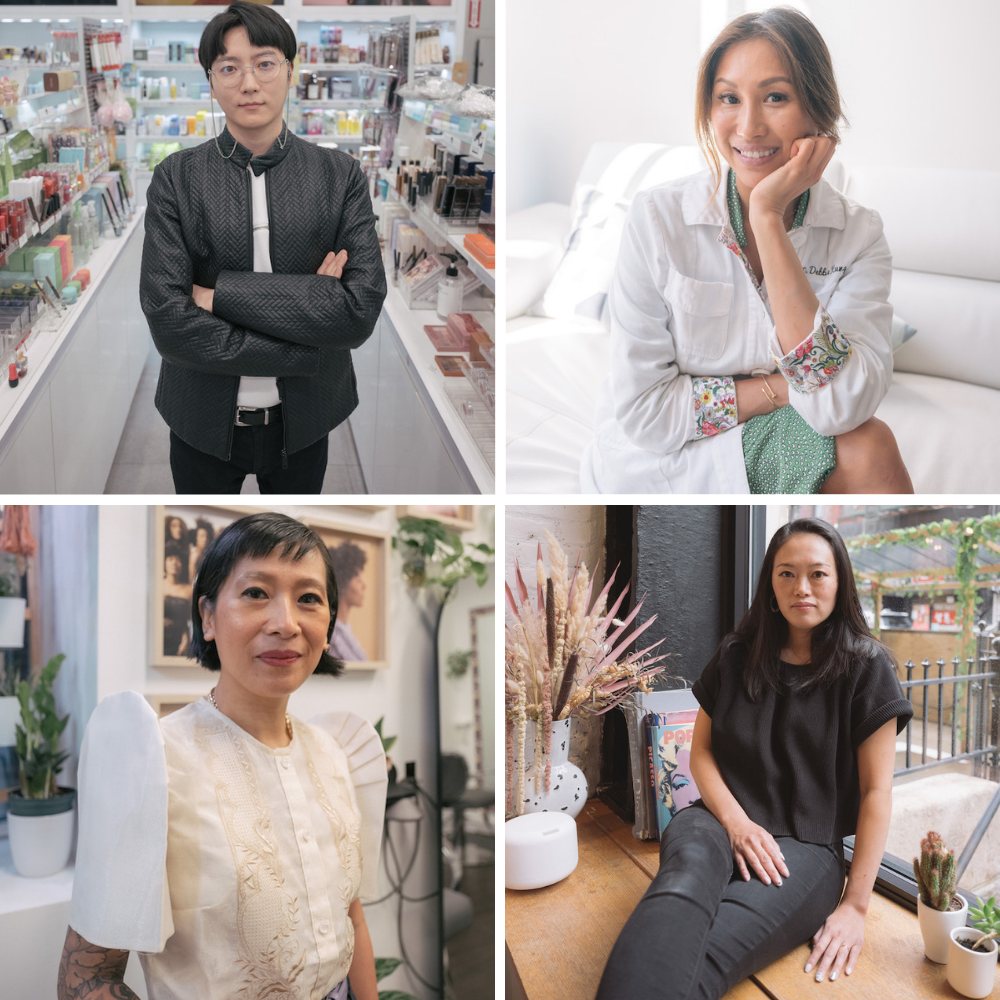Mona Baltazar
Founder and Owner, The Mona Cut
“When we were 10 years old, my sister and I moved from the Philippines to San Jose. Coming from a country where all of my neighbors looked like me, the US was a culture shock. There were girls in my grade who towered over me and looked very different. My sister and I were a team, and we’d come home from school every day and discuss things we picked up from our classmates so we could blend in as quickly as possible.
My family was not well-off in the US, and college was never a conversation. On career day in high school I found a cosmetology pamphlet with a man with long, luscious hair on the front. If you ask anyone, being Filipino is all about having long hair, and I wanted to do what he was doing. While I was working in a salon in California I won a sales contest to fly to New York for a four-day Redken class. It was my second time on an airplane, and I fell in love with the city. I told my boss I was putting in my one year notice and when I was ready he bought me a one-way ticket. Now I’ve been here for 16 years.
In 2015 a woman named Edgy came to see me for a haircut. It was the beginning of a huge movement towards natural, curly hair in Black and mixed communities, but there weren’t many curly-hair cutters in New York. A lot of stylists would say, ‘Oh, you have too much hair, we’re going to have to straighten it,’ or huff and puff like curly hair was such a chore. Curly hair was new to me but it didn’t stop me—I’m a hairdresser, and my job is to help you understand your hair and feel good about it. Edgy posted a photo of her haircut on Instagram and tagged me, and it was a chain reaction from there. Textured hair is very sensitive and has so many personalities, which is the beauty of it. I want a client to feel really comfortable with their own texture, and I’m here to hold their hand on that journey. A client of mine gave me the name ‘The Mona Cut,’ and in March 2018 I officially opened as The Mona Cut independently.
Beauty is so limitless right now, and it’s amazing that everyone has the opportunity to choose how they want to look, but at this moment I’m actively trying to not stand out. My mom is very open-minded and bold, and raised my sisters and I to never feel like we had to look a certain way. She just turned 66 the other day, and I don’t think I’ve ever seen her look more fabulous—her hair is silver and she wears it really short. A few years ago I was running errands on my lunch break, and some guy came up behind me and said under his breath, ‘real American, so American.’ I remember wondering if that meant I’m not supposed to have tattoos because I’m Asian, or if because I have tattoos I’m trying to fit an American visual. The other day I worried about leaving my house in a bright yellow Nike jacket, and I just bought sunglasses to try to hide that I’m Asian. But something exciting about being Filipino here in New York is that young entrepreneurs are highlighting street food from the Philippines more and more. Project Barkada highlights a lot of Filipino small businesses, which is how I found Kabisera and FromKora donuts, which became huge this year like how Cronuts were huge. I miss home, and food is home.”
—as told to ITG

